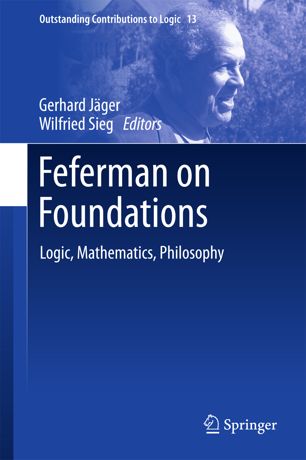

Most ebook files are in PDF format, so you can easily read them using various software such as Foxit Reader or directly on the Google Chrome browser.
Some ebook files are released by publishers in other formats such as .awz, .mobi, .epub, .fb2, etc. You may need to install specific software to read these formats on mobile/PC, such as Calibre.
Please read the tutorial at this link: https://ebookbell.com/faq
We offer FREE conversion to the popular formats you request; however, this may take some time. Therefore, right after payment, please email us, and we will try to provide the service as quickly as possible.
For some exceptional file formats or broken links (if any), please refrain from opening any disputes. Instead, email us first, and we will try to assist within a maximum of 6 hours.
EbookBell Team

4.8
84 reviewsThis volume honours the life and work of Solomon Feferman, one of the most prominent mathematical logicians of the latter half of the 20th century. In the collection of essays presented here, researchers examine Feferman’s work on mathematical as well as specific methodological and philosophical issues that tie into mathematics. Feferman’s work was largely based in mathematical logic (namely model theory, set theory, proof theory and computability theory), but also branched out into methodological and philosophical issues, making it well known beyond the borders of the mathematics community.
With regard to methodological issues, Feferman supported concrete projects. On the one hand, these projects calibrate the proof theoretic strength of subsystems of analysis and set theory and provide ways of overcoming the limitations imposed by Gödel’s incompleteness theorems through appropriate conceptual expansions. On the other, they seek to identify novel axiomatic foundations for mathematical practice, truth theories, and category theory.
In his philosophical research, Feferman explored questions such as “What is logic?” and proposed particular positions regarding the foundations of mathematics including, for example, his “conceptual structuralism.” The contributing authors of the volume examine all of the above issues. Their papers are accompanied by an autobiography presented by Feferman that reflects on the evolution and intellectual contexts of his work. The contributing authors critically examine Feferman’s work and, in part, actively expand on his concrete mathematical projects. The volume illuminates Feferman’s distinctive work and, in the process, provides an enlightening perspective on the foundations of mathematics and logic.